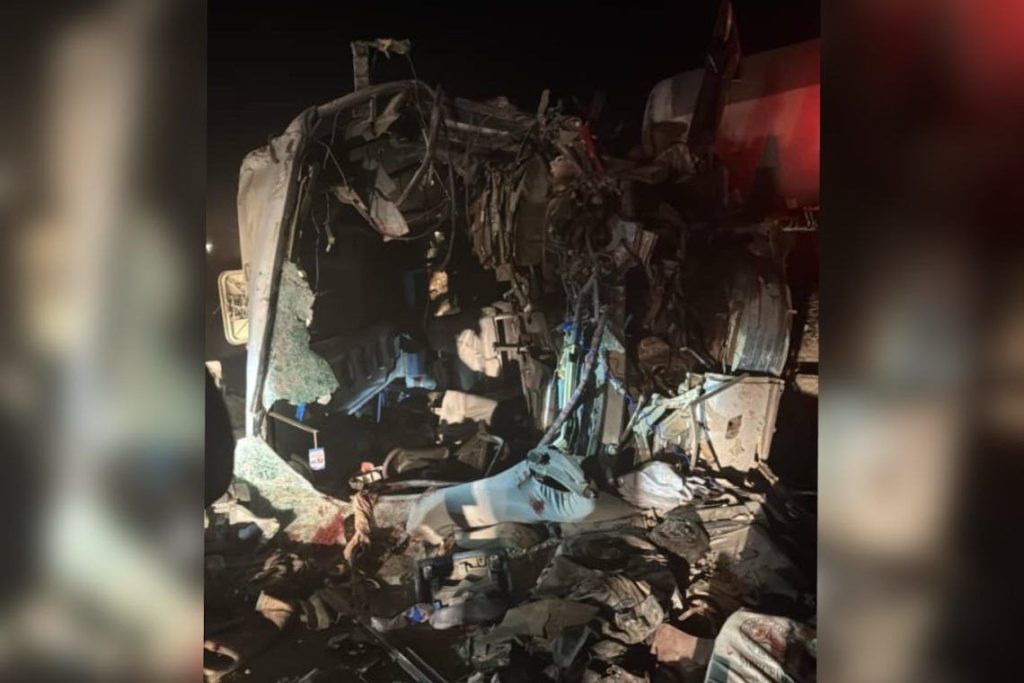Israel this week briefed Biden administration officials on a plan to evacuate Palestinian civilians ahead of a potential operation in the southern Gaza city of Rafah aimed at rooting out Hamas militants, according to U.S. officials familiar with the talks.
Kabul 24: The officials, who were not authorized to comment publicly and requested anonymity to speak about the sensitive exchange, said that the plan detailed by the Israelis did not change the U.S. administration’s view that moving forward with an operation in Rafah would put too many innocent Palestinian civilians at risk.
Israeli Prime Minister Benjamin Netanyahu has vowed to carry out a military operation in Rafah despite warnings from President Joe Biden and other western officials that doing so would result in more civilian deaths and worsen an already dire humanitarian crisis.
The Biden administration has said there could be consequences for Israel should it move forward with the operation without a credible plan to safeguard civilians.
“Absent such a plan, we can’t support a major military operation going into Rafah because the damage it would do is beyond what’s acceptable,” U.S. Secretary of State Antony Blinken said late Friday at the Sedona Forum, an event in Arizona hosted by the McCain Institute.
Some 1.5 million Palestinians have sheltered in the southern Gaza city as the territory has been ravaged by the war that began on Oct. 7 after Hamas militants attacked Israel, killing 1,200 people and taking about 250 hostages.
The United Nations humanitarian aid agency on Friday said that hundreds of thousands of people would be “at imminent risk of death” if Israel moves forward with the Rafah assault. The border city is a critical entry point for humanitarian aid and is filled with displaced Palestinians, many in densely packed tent camps.
The officials added that the evacuation plan that the Israelis briefed was not finalized and both sides agreed to keep discussing the matter.
White House press secretary Karine Jean-Pierre told reporters on Friday that no “comprehensive” plan for a potential Rafah operation has been revealed by the Israelis to the White House. The operation, however, has been discussed during recent calls between Biden and Netanyahu as well as during recent virtual talks with top Israeli and U.S. national security officials.
“We want to make sure that those conversations continue because it is important to protect those Palestinian lives — those innocent lives,” Jean-Pierre said.
The revelation of Israel’s continued push to carry out a Rafah operation came as CIA director William Burns arrived Friday in Egypt, where negotiators are trying to seal a cease-fire accord between Israel and Hamas.
Hamas is considering the latest proposal for a cease-fire and hostage release put forward by U.S., Egyptian and Qatari mediators, who are looking to avert the Rafah operation.
They have publicly pressed Hamas to accept the terms of the deal that would lead to an extended cease-fire and an exchange of Israeli hostages taken captive on Oct. 7 and Palestinian prisoners in Israeli jails.
Israel’s Civilian Evacuation Plan for Potential Rafah Operation
Israel recently briefed U.S. officials on a plan to evacuate Palestinian civilians before a potential operation in Rafah, Gaza, targeting Hamas militants. Here’s a breakdown of the situation:
Briefing on Evacuation Plan
Israeli officials shared details of the evacuation plan with the Biden administration, emphasizing the need to safeguard civilians. However, concerns remain about the risks to innocent Palestinian lives.
International Concerns and Consequences
Despite Israeli Prime Minister Benjamin Netanyahu’s determination to proceed with the operation, Western leaders, including President Biden, have warned of the potential for increased civilian casualties and worsening humanitarian conditions.
U.S. Stance and Consequences
The Biden administration has made it clear that without a credible plan to protect civilians, support for a major military operation in Rafah is not feasible. Secretary of State Antony Blinken emphasized the need for a comprehensive strategy to prevent unacceptable harm.
Humanitarian Crisis and Risks
The United Nations has raised alarms about the dire situation in Rafah, highlighting the imminent risk of death for hundreds of thousands of people if the assault proceeds. The city serves as a vital hub for humanitarian aid and houses displaced Palestinians in precarious conditions.
Ongoing Discussions and Uncertainty
While the evacuation plan is still under discussion and not finalized, both sides have committed to further dialogue. The White House has not received a comprehensive plan for the operation, emphasizing the importance of protecting innocent lives in any potential military action.
Diplomatic Efforts and Cease-fire Negotiations
CIA Director William Burns’ visit to Egypt coincides with efforts to broker a cease-fire between Israel and Hamas. Mediators are working on a proposal to prevent the Rafah operation, urging Hamas to consider a deal that includes a cease-fire extension and a hostage/prisoner exchange.
The situation remains fluid, with diplomatic efforts ongoing to avert further escalation and protect civilian lives in the region.







